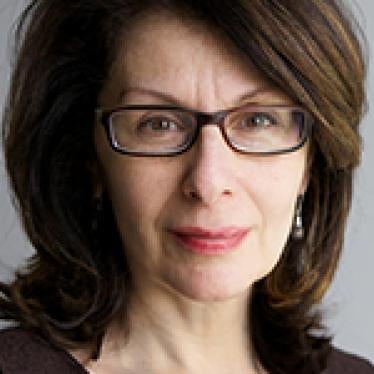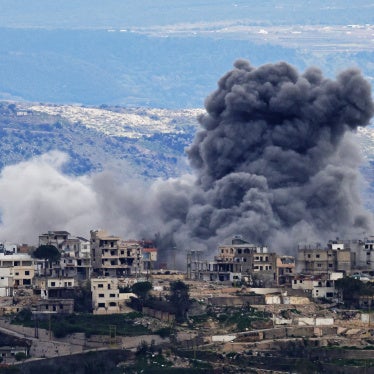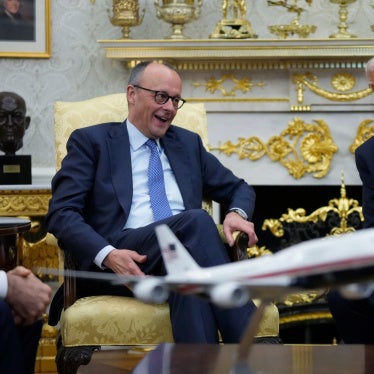Greenpeace activists, the punk group Pussy Riot, and now protester Mikhail Kosenko are all victims of the Russian authorities’ habit of twisting the law. It allows the government to send blunt, bullying messages, but the cost is social activists’ liberty and possibly much more.
When two Greenpeace activists attempted to scale the platform of a Gazprom drilling station in the Pechora Sea in September, authorities arrested 30 people and charged them with piracy – which, according to Russian law, involves using violence and raiding a sea vessel to achieve personal gain. Russian President Vladimir Putin has informed everyone that the Greenpeace activists are not, of course, pirates. Had they accused them of trespassing, there would have been little outcry. But Russian authorities want noise. The more disproportionate the charge, the louder the din. This sends a strong political message about Russia’s claim to the Arctic – not to mention its scorn and intolerance for environmental protests.
Last year Russian authorities used a similar strategy against the feminist punk group Pussy Riot. They performed a 40 second stunt in Moscow’s largest cathedral during which they jumped around and shouted lyrics to their song excoriating Putin’s close relationship with the Russian Orthodox Church. The cathedral was nearly empty at the time. But three group members were convicted of disproportionate hate crime charges in a verdict that featured some very twisted legal reasoning. Two of the three are still serving out their prison sentence.
Mikhail Kosenko is the latest victim. He is one of 26 people charged with involvement in “mass riots” and violence against a police officer during a mass protest on Moscow’s Bolotnaya Square on the eve of Putin’s inauguration. Today he was found guilty of these disproportionate charges, even after the evidence against him fell apart at trial. He was sentenced to indefinite, forced psychiatric treatment in a closed psychiatric institution. Although he has mild schizophrenia, he never showed any aggression or had any problems with the police until the rally. This remained the case during his pretrial custody, even when the court forbade him from attending his mother’s funeral. Kosenko’s sentence is reminiscent of the very dark period of Soviet punitive psychiatry, and the “Bolotnaya” case looks ever more like a message of revenge against protesters who spoiled Putin’s third inauguration.
All three cases show the liberties Russian authorities are willing to take with the law to warn the public about the limits of acceptable criticism.







